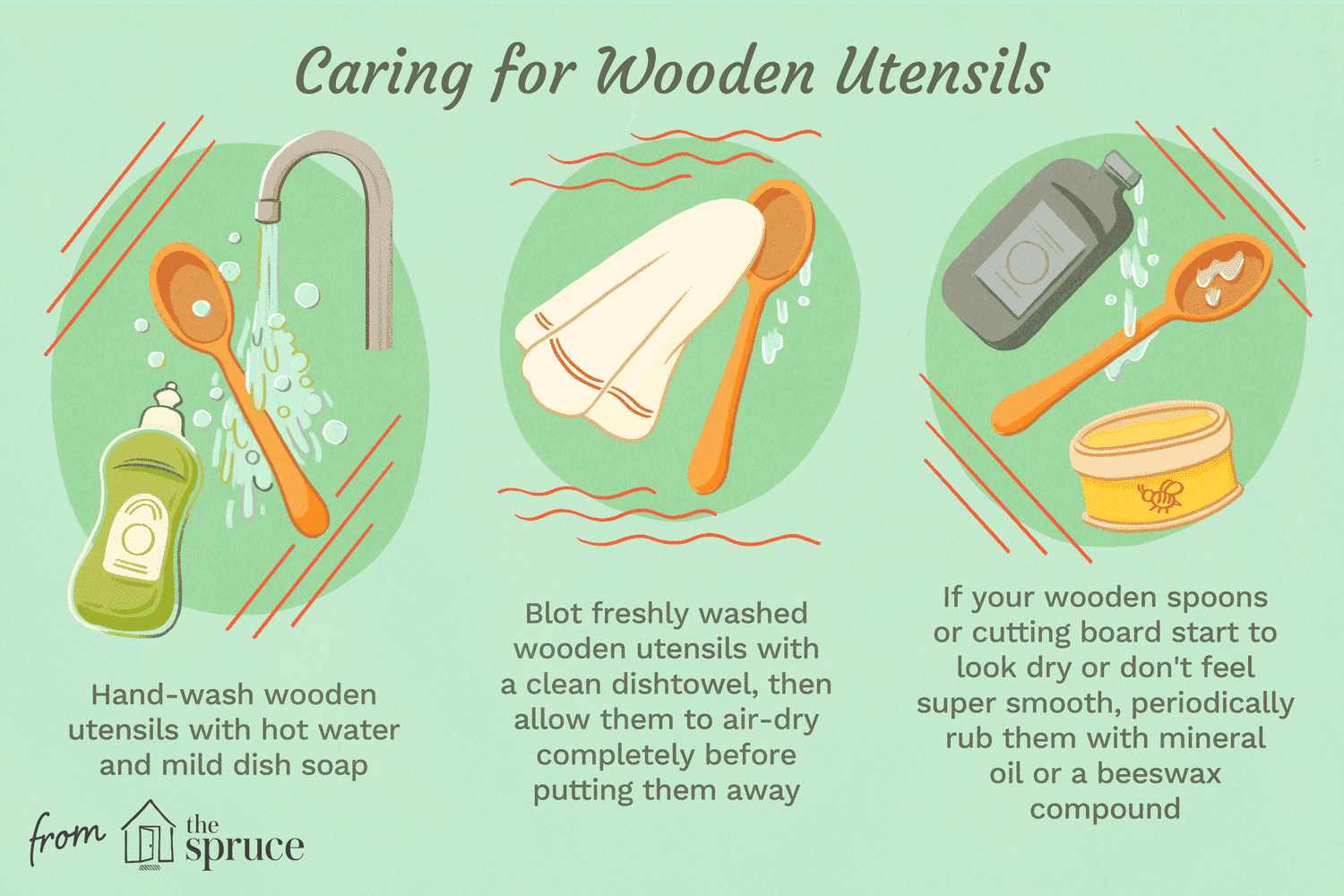Wooden kitchen utensils are not only functional but also add a touch of natural beauty to your cooking space. However, to ensure they last for years and remain hygienic, proper care is essential. Here’s how you can maintain your wooden utensils effectively:
Hand-Washing is Key: Always wash your wooden utensils by hand. The dishwasher’s high temperatures and prolonged cycles can cause the wood to absorb too much water, leading to warping, cracking, or even splitting. Use hot water and a mild dish soap for cleaning. A soft sponge or a gentle brush will suffice for scrubbing without damaging the wood’s surface.
Gentle Scrubbing: When cleaning, opt for a soft sponge or dishcloth. Avoid harsh scrubbers like steel wool, which can remove the finish or reshape the wood. Scrub gently in the direction of the wood grain to prevent damage to the wood fibers.
Rinse Thoroughly: After scrubbing, rinse your utensils thoroughly under warm water to remove all soap residue. This step is crucial to prevent any soapy film from affecting the taste of your food or the integrity of the wood.
Pat Dry and Air Dry: Use a clean, lint-free towel to gently pat dry your utensils. Then, allow them to air dry completely by standing them up or placing them in a drying rack. This ensures even drying and minimizes the risk of moisture-related issues like mold or warping.
Oiling for Longevity: To prevent your wooden utensils from drying out or cracking, apply food-grade mineral oil or a beeswax compound periodically. This not only keeps the wood looking beautiful but also wards off any potential damage. Avoid using food-based oils like vegetable or olive oil, as they can go rancid.
Addressing Stains and Odors: Wooden utensils can absorb strong smells or get stained by highly pigmented foods. For odors, rub the utensil with a lemon wedge or a paste of baking soda and water. For stubborn stains, gently sand the surface with fine-grit sandpaper, then re-oil.
Natural Disinfection: If your utensils have come into contact with raw meat, fish, or poultry, use a vinegar and water solution or a cut lemon for natural disinfection. This helps eliminate bacteria without harsh chemicals.
Avoid Extreme Temperatures: Never expose your wooden utensils to extreme heat or cold. This includes avoiding the dishwasher, microwave, or oven, as these conditions can harm the wood.
When to Retire: Over time, wooden utensils might develop cracks or become too rough. If they split or crack, it’s time to dispose of them, as these areas can harbor bacteria. Check local composting facilities for disposal options.
By following these care instructions, your wooden kitchen utensils will not only last longer but will also continue to be a hygienic and beautiful part of your culinary toolkit. Remember, the key to longevity is regular cleaning, proper drying, and occasional oiling, ensuring your utensils remain in top condition for all your cooking needs.

